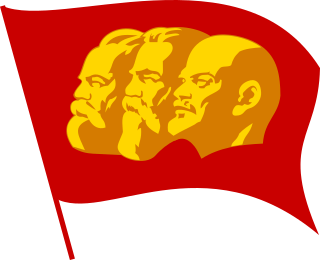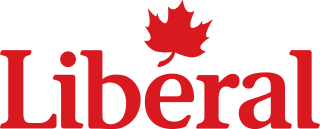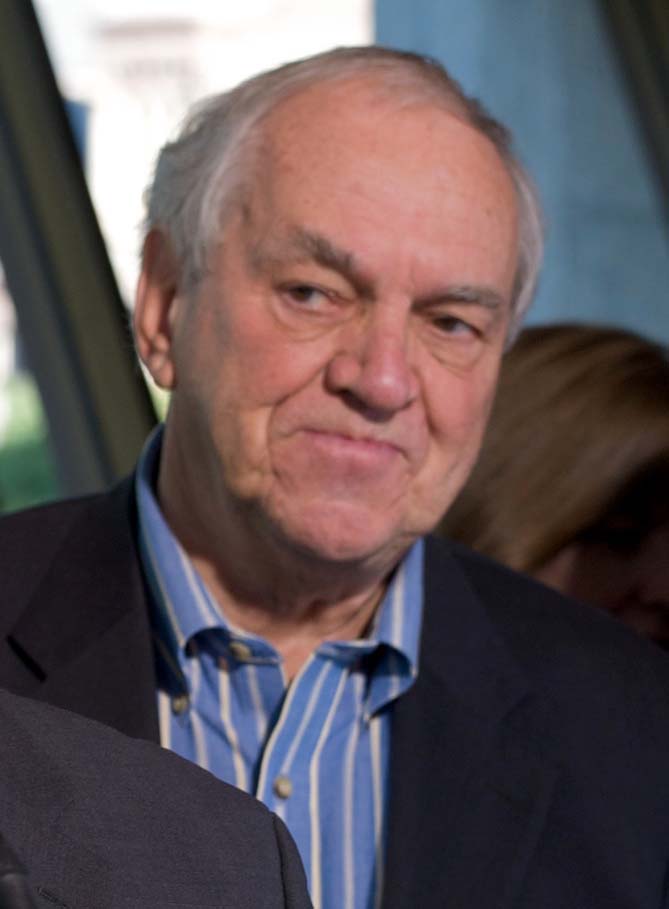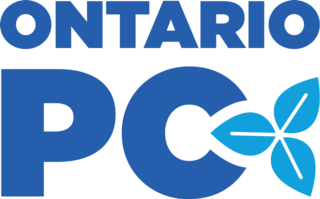
In political science, Marxism–Leninism is the ideology established by Joseph Stalin as a synthesis of Marxism and Leninism as the official state ideology of the Soviet Union, the political parties of the Communist International after Bolshevisation, and contemporary communist parties, such as the Party for Socialism and Liberation and the Communist Party of Cuba). Combining the political praxis of Lenin and the political and economic theories of Karl Marx, the goal of Marxism–Leninism is a two-stage revolution from a capitalist state to a socialist state, guided by the leadership of a vanguard party of professional revolutionaries drawn from the proletariat; the vanguard party establishes the dictatorship of the proletariat and determines policy with democratic centralism.

The Liberal Party of Canada is the oldest and longest-serving governing political party in Canada. The Liberals form the current government, elected in 2015. The party has dominated federal politics for much of Canada's history, holding power for almost 69 years in the 20th century—more than any other party in a developed country—and as a result, it is sometimes referred to as Canada's "natural governing party".
The New Democratic Party of British Columbia is a social-democratic provincial political party in British Columbia, Canada, which currently governs the province, and previously governed from 1972 to 1975, and then again from 1991 to 2001. Following the 2017 provincial election in British Columbia, the party formed a minority government via a confidence and supply agreement with the British Columbia Green Party, following the defeat of Christy Clark's British Columbia Liberal Party government by a confidence vote in the legislature.

The poverty threshold, poverty limit or poverty line is the minimum level of income deemed adequate in a particular country. In practice, like the definition of poverty, the official or common understanding of the poverty line is significantly higher in developed countries than in developing countries. In 2008, the World Bank came out with a figure of $1.25 a day at 2005 purchasing-power parity (PPP). In October 2015, the World Bank updated the international poverty line to $1.90 a day. The new figure of $1.90 is based on ICP purchasing power parity (PPP) calculations and represents the international equivalent of what $1.90 could buy in the US in 2011. The new IPL replaces the $1.25 per day figure, which used 2005 data. Most scholars agree that it better reflects today's reality, particularly new price levels in developing countries. The common international poverty line has in the past been roughly $1 a day. At present the percentage of the global population living under extreme poverty is likely to fall below 10% according to the World Bank projections released in 2015, although this figure is claimed by scholars to be artificially low due to the effective reduction of the IPL in 2015

John Edward "Ed" Broadbent, is a Canadian social-democratic politician, political scientist, and chair of the Broadbent Institute, a policy thinktank. He was leader of the New Democratic Party of Canada (NDP) from 1975 to 1989. In the 2004 federal election, he returned to Parliament for one additional term as the Member of Parliament for Ottawa Centre.

Alan Milburn is a British Labour politician who was Member of Parliament (MP) for Darlington from 1992 to 2010. He served for five years in the Cabinet, first as Chief Secretary to the Treasury from 1998 to 1999, and subsequently as Secretary of State for Health until 2003, when he resigned. He briefly rejoined the Cabinet as Chancellor of the Duchy of Lancaster in order to manage Labour's 2005 re-election campaign. In June 2009, he told his local party he would not be standing at the 2010 general election, saying: "Standing down as a MP will give me the chance to balance my work and my family life with the time to pursue challenges other than politics."
Welfare is a type of government support for the citizens of that society. Welfare may be provided to people of any income level, as with social security, but it is usually intended to ensure that the poor can meet their basic human needs such as food and shelter. Welfare attempts to provide poor people with a minimal level of well-being, usually either a free- or a subsidized-supply of certain goods and social services, such as healthcare, education, and vocational training.

The Progressive Conservative Party of Ontario, often shortened to Ontario PC Party, PC, or Conservatives, is a centre-right political party in Ontario, Canada. The party has been led by Premier Doug Ford since March 10, 2018.

The Canadian federal election of 1968 was held on June 25, 1968, to elect members of the House of Commons of Canada of the 28th Parliament of Canada. The Liberal Party won a majority government under its new leader, Prime Minister Pierre Trudeau.

The Canadian federal election of 1965 was held on November 8 to elect members of the House of Commons of Canada of the 27th Parliament of Canada. The Liberal Party of Prime Minister Lester B. Pearson was re-elected with a larger number of seats in the House. Although the Liberals lost a small share of the popular vote, they were able to win more seats, but fell just short of having a majority.

Social policy is policy usually within a governmental or political setting, such as the welfare state and study of social services.
The Canadian International Development Agency (CIDA) was a federal Canadian organization that administered foreign aid programs in developing countries. The agency was merged into the Department of Foreign Affairs in 2013 by the federal government under Prime Minister Stephen Harper.

Peter Brereton Townsend was a British sociologist. The last position he held was Professor of International Social Policy at the London School of Economics. He was also Emeritus Professor of Social Policy in the University of Bristol, and was one of the co-founders of the University of Essex. He wrote widely on the economics of poverty and was co-founder of the Child Poverty Action Group. The Peter Townsend Policy Press Prize was established by the British Academy in his memory.
The basic needs approach is one of the major approaches to the measurement of absolute poverty in developing countries. It attempts to define the absolute minimum resources necessary for long-term physical well-being, usually in terms of consumption goods. The poverty line is then defined as the amount of income required to satisfy those needs. The 'basic needs' approach was introduced by the International Labour Organization's World Employment Conference in 1976. "Perhaps the high point of the WEP was the World Employment Conference of 1976, which proposed the satisfaction of basic human needs as the overriding objective of national and international development policy. The basic needs approach to development was endorsed by governments and workers’ and employers’ organizations from all over the world. It influenced the programmes and policies of major multilateral and bilateral development agencies, and was the precursor to the human development approach."
Kelly Lamrock is a lawyer and political consultant in the province of New Brunswick, Canada. He was previously a Liberal member of the Legislative Assembly of New Brunswick for Fredericton-Fort Nashwaak, and Minister of Social Development in the New Brunswick cabinet before opening Lamrock's Law in Fredericton.
Wendell Fields was a veteran anti-poverty activist in Hamilton, Ontario, Canada. He was director of Hamilton Against Poverty, and twice campaigned for the House of Commons of Canada as a candidate of the Communist Party of Canada - Marxist-Leninist (CPC-ML). He had brain cancer and died on March 1, 2017.
The Fifth Labour Government of New Zealand was the government of New Zealand from 10 December 1999 to 19 November 2008. Labour Party leader Helen Clark negotiated a coalition with Jim Anderton, leader of the Alliance Party and later the Progressive Party, and New Zealand First. While undertaking a number of substantial reforms, it was not particularly radical compared to previous Labour governments.
The Green Initiative was a Green political party in Argentina, founded in 2006. It was Argentina's first secular Green party, and the first Argentine organization to be a member of Global Greens. It was primarily active in Buenos Aires. The Green Initiative was a forerunner of Argentina's Greens-FEP.
The New Democratic Party is a social democratic federal political party in Canada. The party was founded in 1961 out of the merger of the Co-operative Commonwealth Federation (CCF) with the Canadian Labour Congress (CLC). The party sits to the left of the Liberal Party of Canada within the Canadian political spectrum. The leader of the federal NDP is Jagmeet Singh, who won the 2017 leadership election.











